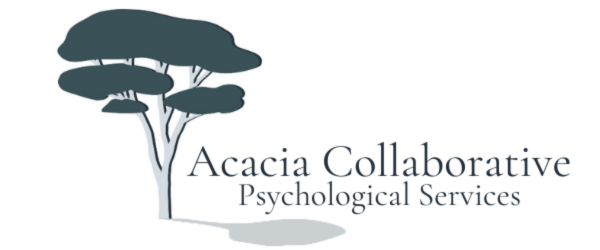Psychological & Psychoeducational Assessments in Durham, NC
Psychological & Psychoeducational Assessments in Durham, NC
When do people get psychoeducational and psychological testing?
Our psychological testing services can help provide clarity & provide mental health diagnoses. You can undergo testing with our psychoeducational assessments in Durham, North Carolina.
- Testing helps increase our understanding of why we think, feel, and behave the way that we do.
- Formal assessment helps us understand whether symptoms warrant a diagnosis or any treatment.
- These evaluations can help guide treatment planning with one’s therapist and/or psychiatrist.
- Psychological testing provides reliable diagnoses in a written format, which can be utilized to ascertain useful services.
- Formal assessment may be required documentation for educational or medical/disability systems.
- It may help you ascertain academic or occupational accommodations to help bolster performance and harness your strengths or making vocational decisions.
- Many seek out testing to ascertain practical treatment recommendations related to accommodations or symptom management.

Psychoeducational Assessments in the Triangle
Our expertise includes assessment designed to answer questions related to school performance, including Early Entry to Kindergarten, ADD/ADHD, and learning differences. We utilize assessments approved by the Wake, Durham, and Orange school systems and our reports can be used to contribute to the development of Individualized Education Plans (IEPs) and support ideas for academic accommodations.
Types of Psychoeducational Evaluations at Acacia
Psychoeducational Evaluations are administered when the referral question is primarily educational. These tests are appropriate for children and adults. Diagnoses that are evaluated for with a psychoeducational evaluation include, but are not limited to, attention-deficit/hyperactivity disorder (ADHD), learning disorders, intellectual disabilities, and more, while accounting for other mental health challenges (e.g., anxiety, depression) that may be impacting academic success. We offer several different types of psychoeducational evaluations, and more information about which is best for your needs can be provided through a free consultation call with our providers.
Full Psychoeducational Evaluation: Our full psychoeducational battery includes cognitive and achievement testing, along with specific continuous performance testing to determine attentional and executive functioning. This assessment specifically assesses for the possibility of ADHD, intellectual disabilities, learning disorders, and more, while ruling out the influence of other mental health conditions that may impact one’s executive functioning or academic performance. Additional individuals involved in the child’s life, such as teachers, may also be interviewed. Depending on the circumstances, observing the child in a school setting or arranging collateral calls with teachers and/or school counselors might provide valuable insight.
Achievement Testing only: This assessment includes the Woodcock Johnson IV Tests of Achievement (WJ-IV), which provides detailed information on one’s proficiency in specific academic areas, as well as their relative and normative strengths and weakness in different domains of reading, writing, and mathematics.
Giftedness Testing: These assessments are conducted to determine whether children are eligible for their respective gifted programs. In many districts, children need to perform at the 95th percentile in order to be placed in gifted programs.
Readiness for Kindergarten: These evaluations are used to determine readiness for early entry into kindergarten. In North Carolina, for a child to start Kindergarten in a given academic year, they need to be five years old by August 31st. However, if a child turns four by the previous April 16th, they might qualify for early entry to Kindergarten if they’re identified as gifted and demonstrate the maturity needed for school success. It’s important to mention that North Carolina mandates that children meet specific cognitive and academic benchmarks (i.e., scoring in the 98th percentile for cognitive abilities, which are innate abilities, and in the 98th percentile for reading or math achievement, which are achievement of learned material) to be considered for early entry. Developmental and physical readiness for kindergarten are also considered.
Unlock Special Resources & Family Support
In cases where formal accommodations are required, psychoeducational assessments provide the documentation needed to advocate for your child’s rights within the school system. This unlocks a variety of resources and support to best support your child.
Beyond academics, these assessments can also address social and emotional development, providing a more holistic view of the child’s needs and strengths. This comprehensive approach supports overall well-being and development.

Types of Psychological Assessments at Acacia
Psychological evaluations are typically used when the referral question is primarily one of mental health or there is diagnostic uncertainty requiring a more in-depth exploration regarding what an individual is struggling with. These types of assessment can be conducted with children and adults. Various testing options can be tailored to address specific presenting concerns of each individual. Diagnoses that can be assessed for include, but are not limited to, attention and learning disorders, autism spectrum disorders (on a case-by-case basis), mood disorders (depression, bipolar), anxiety disorders, posttraumatic stress and other trauma-related disorders, conduct or other externalizing disorders, obsessive-compulsive disorders, personality disorders, substance use disorders, and more. Further guidance on the most suitable option for your requirements can be obtained through a complimentary consultation call.
Abbreviated Psychological Evaluation: This evaluation comprises emotional and personality assessments, offering comprehensive insights into an individual’s functioning within these domains. It facilitates understanding of one’s thoughts, emotions, underlying personality dynamics, coping abilities, and any vulnerabilities. In cases cognitive issues appear less relevant, a condensed psychological evaluation proves invaluable for clarifying diagnoses and providing treatment guidance.
Full Psychological Evaluation: This assessment encompasses cognitive, emotional, and personality assessment, offering detailed insights into an individual’s functioning across these domains. It serves to elucidate thought processes, emotional states, underlying personality traits, cognitive abilities, coping mechanisms, and any areas of vulnerability. Particularly in clinically intricate scenarios or when articulating concerns proves challenging, a comprehensive psychological evaluation proves invaluable, offering diagnostic clarity and tailored treatment recommendations.
Comprehensive psychological evaluation: This assessment encompasses comprehensive testing, incorporating evaluations for psychological, psychoeducational, and substance abuse issues. It’s ideal for situations where there are multiple concerns or suspected educational and mental health issues. The evaluation aims to identify and eliminate any potential cognitive or educational challenges, mental health concerns, and/or substance abuse problems.
Autism Testing for Children ages 8-18: The assessment and diagnosis of autism spectrum disorder (ASD) is a complex process that involves several key components, including observation of behavior, comprehensive collateral interviewing regarding one’s developmental history, and evaluation of cognitive and psychosocial functioning. This extensive evaluation serves to gather information about biopsychosocial functioning beginning in early childhood, difficulties with social communication, any restricted interests or repetitive behaviors, and any areas of vulnerability.
ASD is a complex developmental disorder that impacts various aspects of development and functioning (e.g., social, behavioral). It is common for people with ASD to struggle with social interactions and communication, and there are typically signs of this condition in early childhood. Importantly, ASD occurs on a continuum, which means that symptoms vary widely across those with this disorder, making it challenging to diagnose without proper assessment tools. Acacia Collaborative offers the proper assessment tools to diagnose ASD.
Autism Testing for Adults ages 18+: Many believe that ASD is only diagnosed in childhood. However, as ASD becomes more well-known as a condition, it is common for adolescents and adults to question whether or not they might have ASD. Diagnosing adults can be particularly complex given that there may be less available information about their early developmental functioning. This is why tools, such as direct observation, are critical to diagnose ASD. Importantly, if one began struggling with social difficulties or related issues in their adolescent or adult years, this is likely suggestive of other difficulties rather than ASD.
What should I expect from testing?
Consultation call
A complimentary consultation call is offered to help determine a personalized testing plan to meet your needs. Questions and concerns about testing are encouraged and can be discussed with the testing psychologist at this time before committing to the evaluation.
Clinical interview and information gathering
Interview(s) are conducted with the individual being tested and any important collateral contacts (e.g., parents, teachers). Information gathered will include developmental, health, school/employment, and family history. Any relevant records will be reviewed (e.g., report card, prior testing).
Assessment
Depending on the evaluation chosen, the testing day may last between 2-6 hours and include cognitive and achievement testing, continuous performance testing, and evaluation of emotional and/or executive functioning impairments.
Feedback and recommendations
After the written report is finalized, a feedback session is conducted with the testing psychologist to discuss the report findings, the meanings of each of the testing scores and diagnoses, and recommendations for the client (e.g., useful accommodations, treatment needs). Any questions and concerns are encouraged to ensure a full understanding of each of the findings.
What will the testing tell me?
- Psychoeducational testing can help improve your understanding of your learning style and any strengths and weaknesses.
- These psychoeducational results may provide helpful information about accommodations that may be useful academically or in the workplace.
- Psychological testing is also used for differential diagnosis when one’s diagnoses are unclear or more information is needed.
- Recommendations will help you and your loved ones better understand what will be helpful to target moving forward.
What testing will tell you also depends on the level of comprehension your test is. We offer different size levels of assessment for simple and advanced evaluations.
Insurance & Fees for Psychological Assessments
All testing appointments take place at our office in Durham, North Carolina. However, if preferred, the initial consultation and clinical interviews can be completed by telehealth. Total assessment costs can range from $600-$3000+ depending on the testing required.
Evaluations are out-of-network for insurance. As a courtesy, we will provide you with statements that have all the necessary information required to file a claim with your insurance carrier. We strongly encourage you to check your policy and contact your insurance carrier directly with any questions about your benefits and limitations.
Getting Started Is Easy
STEP ONE: CONTACT US
At any point in your decision to pursue therapy or assessment, feel free to contact us with questions. We will gladly talk with you over the phone to determine if one of us will be a good fit. Visit our Contact Page.
STEP TWO: INTAKE
Once you have scheduled an appointment, you will be emailed forms to complete electronically prior to your first appointment. If we are in-network with your Aetna, Blue Cross Blue Shield, or State Health Plan insurance benefits will be processed.
STEP THREE: FIRST SESSION
Your first appointment will be 60 minutes. In this first appointment, we will discuss what brought you in, your history, and will develop a “game plan” with you to work toward your goals.
Contact Acacia Collaborative
Ask a question or book an appointment below.
Hours
Monday through Friday
9AM-8PM
Saturday: 9AM-3PM
Durham Office:
3710 University Drive #302, Durham, NC 27707
Cary Office:
570 New Waverly Pl #210, Cary, NC 27518
Online Therapy
All of North Carolina
Insurance
Accepting Aetna, Blue Cross Blue Shield, State Health Plan, Out-of-Network Superbills & Private Pay
Services
Mental Health Therapy & Psychological Assessments
